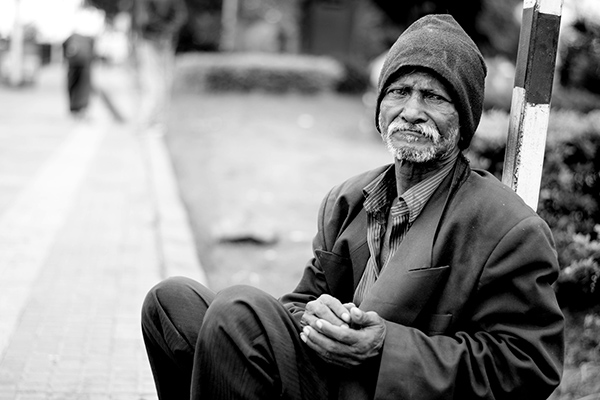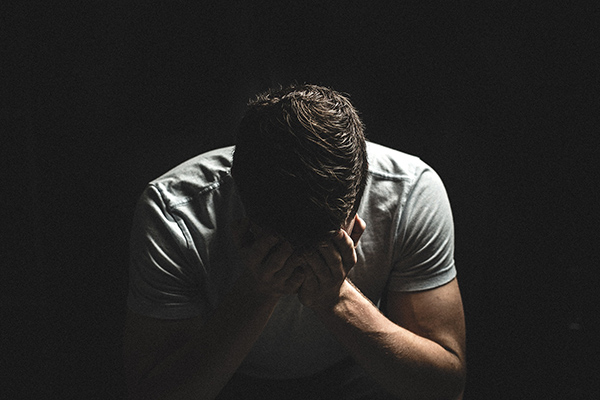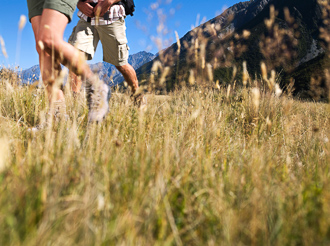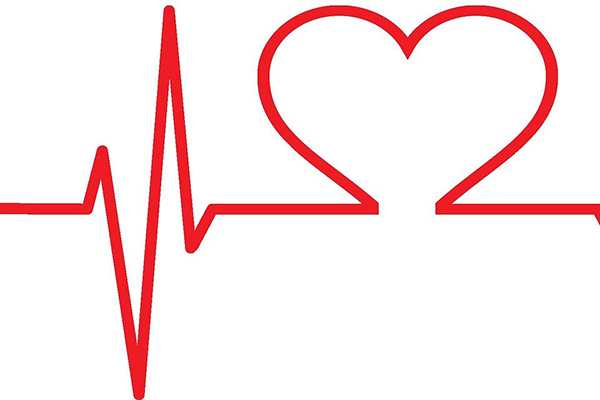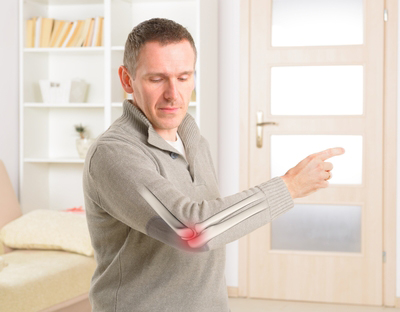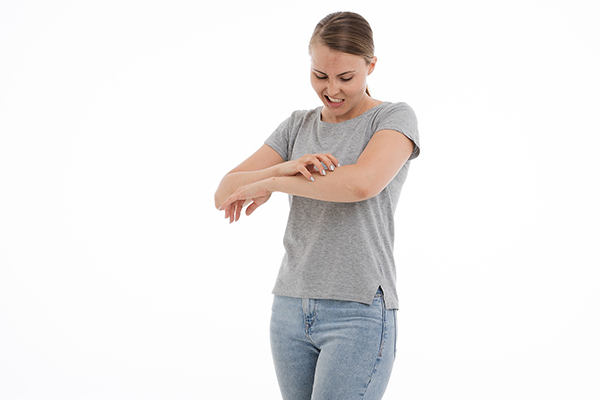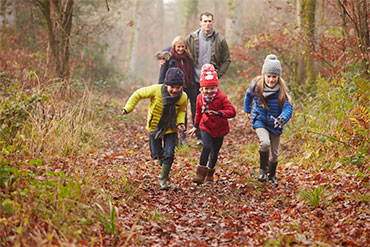Mental Illness and Homelessness
Listen to Chuck’s interview on Warm 106.9 about mental illness and homelessness where he contributes to the conversation about mental health and mental illness in our city’s homeless population. We are seeing the homeless population grow in our communities in and around Seattle and many of these people may have a mental illness. Chuck shares insights of ways that we can help.
Suicide Prevention
Chuck talks with Warm 106.9 about suicide and suicide prevention. Certainly having more public conversations about suicide is going to move us forward to being better and more compassionate friends, family and coworkers to those who struggle with suicidal thoughts. Chuck brings insights and talks about the community Walks in October.
Spring Allergies
Listen to Dr. Park speak on KOMO News Radio about spring allergies.
Preventing Heart Disease
Dr. Parikh was interviewed about preventing heart disease and living a heart healthy life. Find out more by playing the radio clip below! This radio interview was played on KKNW 1150 AM, KIXI 880 AM, KQMV “Movin’ 92.5” FM and 6 KNUC 98.9 FM “The Bull”
Injuries of the Elbow
Dr. Marion was interviewed on KOMO radio about one of his specialties, injuries of the elbow. He discusses ligament injuries, Seahawk Richard Sherman’s injury, Tommy John surgery (TJS), also known as ulnar collateral ligament (UCL) reconstruction and more. Listen below.
Dr. Becke on bug bites
Dr. Becke was interviewed on KOMO radio about Bug Bites. Find out what kind of bites are prevalent in our area, what you can do to prevent them and what to do when you get them. Listen to part 1 and 2 of the radio clip below and learn more!
Part 1
Part 2
Addressing poor air quality
 Wildfire smoke has been affecting air quality these past several days, so we asked PacMed pulmonologists, Dr. Manika Jamwal and Dr. Hina Sahi on what this means for you and your family.
Wildfire smoke has been affecting air quality these past several days, so we asked PacMed pulmonologists, Dr. Manika Jamwal and Dr. Hina Sahi on what this means for you and your family.
“For adults, especially those with underlying chronic lung conditions (i.e. asthma, COPD or other chronic lung conditions), it is best to stay indoors and avoid the outdoors and exposure to the smoke. When you are driving, remember to roll up your windows and utilize the air conditioning with the recirculation feature. In your home, if you have air conditioning, we recommend using this instead of opening your windows, especially if you can recirculate the air, versus taking from the outside. For those with chronic lung conditions, keep a close eye on any increased coughing, wheezing or shortness of breath. If these symptoms worsen, see your primary care provider or pulmonologist,” says Dr. Jamwal.
I am healthy, do I need to worry?
Even healthy individuals need to be cautious, air pollution can threaten anyone’s health. Dr. Sahi recommends patients “to be aware of how you feel on high pollution days and take steps to help protect yourself. Common symptoms that people notice include irritation of the eyes, throat and lungs. Burning eyes, cough and chest tightness are common with exposure to high levels of air pollutants. However, responses to air pollution vary greatly in people. Some people may notice chest tightness or cough, while others may not notice any effects.”
Is it safe to exercise outdoors?
Because exercise requires faster, deeper breathing, it may increase the symptoms. People with heart disease, such as angina, or lung disease, such as asthma or emphysema, may be highly sensitive to exposure to air pollution and may have symptoms when others do not. In the current setting where the AQI is in the Red Zone, avoid prolonged vigorous activity outdoors. The health effects of pollution are worsened by the deep, rapid breathing that accompanies exercise.
For patients with significant underlying lung diseases, Dr. Sahi recommends “not being outdoors and definitely not being around high traffic areas. Also, avoid any vigorous outdoor activity.”
How do we know what air quality is considered dangerous?
The Air Quality Index (AQI) is the system used to warn the public when air pollution is higher than average. The AQI tracks ozone (smog) and particle pollution (tiny particles from ash, power plants and factories, vehicle exhaust, soil dust, pollen, and other pollution), as well as other widespread air pollutants. Think of AQI as a yardstick that runs from 0 to 500. The higher the AQI value, the greater the level of air pollution and the greater the health concern. For example, an AQI value of 50 represents good air quality with little potential to affect public health. In the recent days with wildfires raging in Canada as well as the eastern cascades, the AQI has been hovering in the ‘Red Zone.’ Today’s index is measured at 189. Air pollution can harm anyone, but it can be dangerous for a lot of people, including children and teens, people with asthma and other lung diseases, anyone over 65, anyone who exercises or works outdoors, has diabetes or cardiovascular disease like high blood pressure, or has suffered a heart attack or stroke. These individuals are usually the first to feel the effects of the ozone and particle pollution, and should take extra steps to protect themselves from harm.
I see many people wearing masks, should I be wearing one?
Dr. Jamwal advises that the regular masks you are most likely seeing are not enough to protect you from the smoke. If you would like to use a mask, she recommends having it fitted by a physician to be the most effective.
PacMed Donates Specialty Care to our Neighbors

While programs exist that help cover basic health needs, specialty care for more serious issues can be hard to access for people at financial risk.
Project Access Northwest aims to close that gap. PacMed is proud to be a long-time partner of Project Access Northwest. It’s one of many ways we support our community.
People who use Project Access Northwest are often un- or underinsured. It coordinates specialty care and provides other programs for people on the brink. Last year, PacMed physicians provided over 10% of all donated specialty care sought through Project Access Northwest.
We honor the people struggling to make ends meet and are grateful for our partners at Project Access Northwest and many other local nonprofits and programs. Together, we can help our neighbors find and maintain stability in these changing times.
To seek assistance or learn more, visit www.projectaccessnw.org
Staying healthy during the dark days of winter
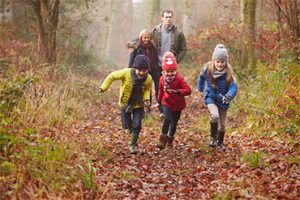
While the shortest day of the year may be behind us, there is still plenty of winter left for us in Seattle — this means short, cool and often gloomy days with little sunlight. Staying healthy during this time of year can feel like a challenge, but there are a few things you can do to keep healthy this winter.
The sun vitamin
As many of us know living in the Northwest, vitamin D is an important part of a healthy body. But this far north, we do not get enough vitamin D from sunlight alone. Our bodies naturally synthesize vitamin D when exposed to sunlight, and all you need for a week’s worth of vitamin D is 15 to 20 minutes in the direct sun with a significant amount of skin exposed. But during the winter months that can be difficult to come by.
Vitamin D helps the body absorb calcium, which supports the development and maintenance of healthy bones. Insufficient amounts of vitamin D, especially in children, can cause a condition called rickets, a softening of the bones. For older people, vitamin D and calcium are important in preventing osteoporosis, or brittle bones.
While we’ve known about the connection between vitamin D and calcium for some time, recent research has shown that vitamin D may also improve muscle recovery and help prevent soreness and aching. Research has also shown that vitamin D may help with immune function and may improve depression symptoms and help alleviate symptoms of Seasonal Affective Disorder (SAD).
You can get small amounts of vitamin D from foods such as fish, eggs and fortified milk, but for people living in the Seattle area, it is difficult to get enough vitamin D without taking a supplement. I recommend that my patients take a daily vitamin D supplement with 1,000 to 2,000 international units (IU) to ensure sufficient vitamin D levels.
The great outdoors
Another aspect of maintaining your health over the winter is to stay active. People often find it difficult to motivate themselves to exercise during the winter because of the weather. But staying active is an important part of maintaining your health and immune system and can help you fight off or recover from colds and other winter viruses faster.
If going to the gym by yourself is the last thing you want to do, find an exercise buddy or sign up for a class. The social aspect will help motivate you to keep your schedule, and people often find it more fun to exercise in pairs or groups. Along similar lines, there are lots of recreational sports leagues in Seattle playing everything from basketball to dodgeball to Ultimate Frisbee that will certainly keep you active.
Organized sports and classes are not the only way to stay fit though. Individual activities like biking, walking and running are still available in the winter months — just embrace the rain!
If you are willing to venture into the mountains, there are plenty of outdoor winter activities like snowshoeing, skiing, snowboarding and cross-country skiing that are fun and relatively close by.
It is important to find a physical activity that you enjoy doing because then you will be more motivated to do it.
Sick time
Finally, the winter months are synonymous with cold and flu season. While there is no surefire way to avoid getting a cold or the flu this winter, there are steps you can take to help you avoid getting sick.
If you haven’t gotten a flu shot already, it’s not too late. While this year’s flu shot might not be as effective as in previous years, it will still give you some protection and can help you recover more quickly should you get the flu.
Washing your hands with soap and water throughout the day will also help you avoid catching and spreading cold and flu viruses. If soap and water are not available, use an alcohol-based hand gel. While it may seem like a simple thing, it is one of the best ways to avoid getting sick.
At home, wipe down counters, tables, and toys with disinfectant on a regular basis.
If you do get sick, stay home from work or school to avoid spreading the virus. Wait until you are fever-free for at least 24 hours before returning to your normal activities.
The winter months in the Northwest can be cold and dreary. But getting adequate exercise, avoiding cold and flu viruses as much as possible and taking vitamin D supplements will help you on your way to maintaining your health over the winter.
Let us stand for each other
“Justice will not be served until those who are unaffected are as outraged as those who are.”
– Unknown“Not everything that is faced can be changed. But nothing can be changed until it is faced.”
– James Baldwin
Fellow Community Members,
We are facing challenging times right now as a society and we need to take a moment to stop and acknowledge the injustices that so many of our colleagues and community members face. Images of the murder of George Floyd have been a haunting reminder of deep-seated injustice that continues to plague our country. There are many underlying causes for this—implicit bias, systemic oppression, a lack of police accountability, gun laws that protect assailants over victims, and persistent anti-black attitudes. For resources on dealing with some of these ills, see below. As understandable frustration spills over on our streets, it can raise uneasy feelings and difficult questions for us: Where do we go from here? How do we support one another going forward?
One of the ways we display our compassion and support for our fellow community members is by speaking up and letting everyone know that the systemic racism that communities of color have experienced in our communities need to end. Although not popular, we need to speak up when we witness these injustices because that is the only way change will occur. We stand with the Floyd family. We stand with Ahmaud Arbery’s family after he was killed jogging in Brunswick, GA. We stand with Breonna Taylor who was killed at the hands of police in Louisville. We stand and expect accountability for the loss of these fellow community members.
At PacMed, we are a community of diverse caregivers committed to providing compassionate, high-quality care to the communities we serve. Part of fulfilling this commitment is supporting everyone, from all walks of life, when they enter our clinic network. We also have a duty to show concern for the misfortunes occurring all around us. Cities across the nation are crying out for change. We support those who are expressing their concerns in peaceful protest. We support better days for everyone. We stand for equality for all and we recognize the need for change in order for every member of our society to feel safe, supported and a sense of belonging.
As we move through these challenging days, know that we all have a voice and we can use it to work for positive change and support those who are unsupported. Now is also a great time to get involved in local government and to find ways to positively influence change so that everyone receives the support they deserve. And let us stand up to individual acts of injustice when we see them in our daily lives, so our neighbors know we have their backs as we together reclaim the space for love, justice, and belonging for all.
Let’s continue to unite and support one another.
Sincerely,
The PacMed Executive Team
PacMed is currently discussing what additional actions we will take to further the work we have done to oppose systemic racism. For now, if you would like to take further action, here are some resources for racial justice and community support:
- NAACP Legal Defense Fund supports racial justice through advocacy, litigation, and education.
- Campaign Zero is a police reform group that has been working on policy solutions informed by data and human rights principles.
TAKE ANTI -RACIST ACTION:
- Learn: blacklivesmatter.com
The official website of the movement that launched the modern fight for freedom, liberation and justice, locally and globally. - Act: kingcountyequitynow.com
Hear from local partners united in a platform to halt predatory development, foster community building and more. - Listen: rainieravenueradio.world
A local, online 24/7 radio station showcasing the diverse voices of South Seattle and those disenfranchised by our rapidly gentrifying region. - Read: southseattleemerald.com
Our homegrown, grassroots online news publication weaving anf equity analysis and perspective into coverage of local issues and beyond. - Bank: blackoutcoalition.org
A compilation on the Bank Black and Buy Black movements, including introductory materials and a map of resources. - Spend: intentionalist.com
Bring consciousness to consumerism by connecting with and supporting the people behind local, small businesses. - Invest: communitypassageways.org
Learn about and support this organization creating alternatives to incarceration for youth and rebuilding communities. - Relate: aapf.org/sayhername
Hear the stories of Black women and girls victimized by racist police violence, and find out what you can do to help. - Connect: bcia-intl.org
Ensure taxpayer-funded organizations are held accountable to goals of bettering the lives of Black families. - Immerse: pinwseattle.org
Grow your understanding of institutional racism through workshops and organizing aligned with others doing similar work in our region and across the U.S.



